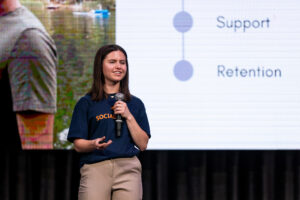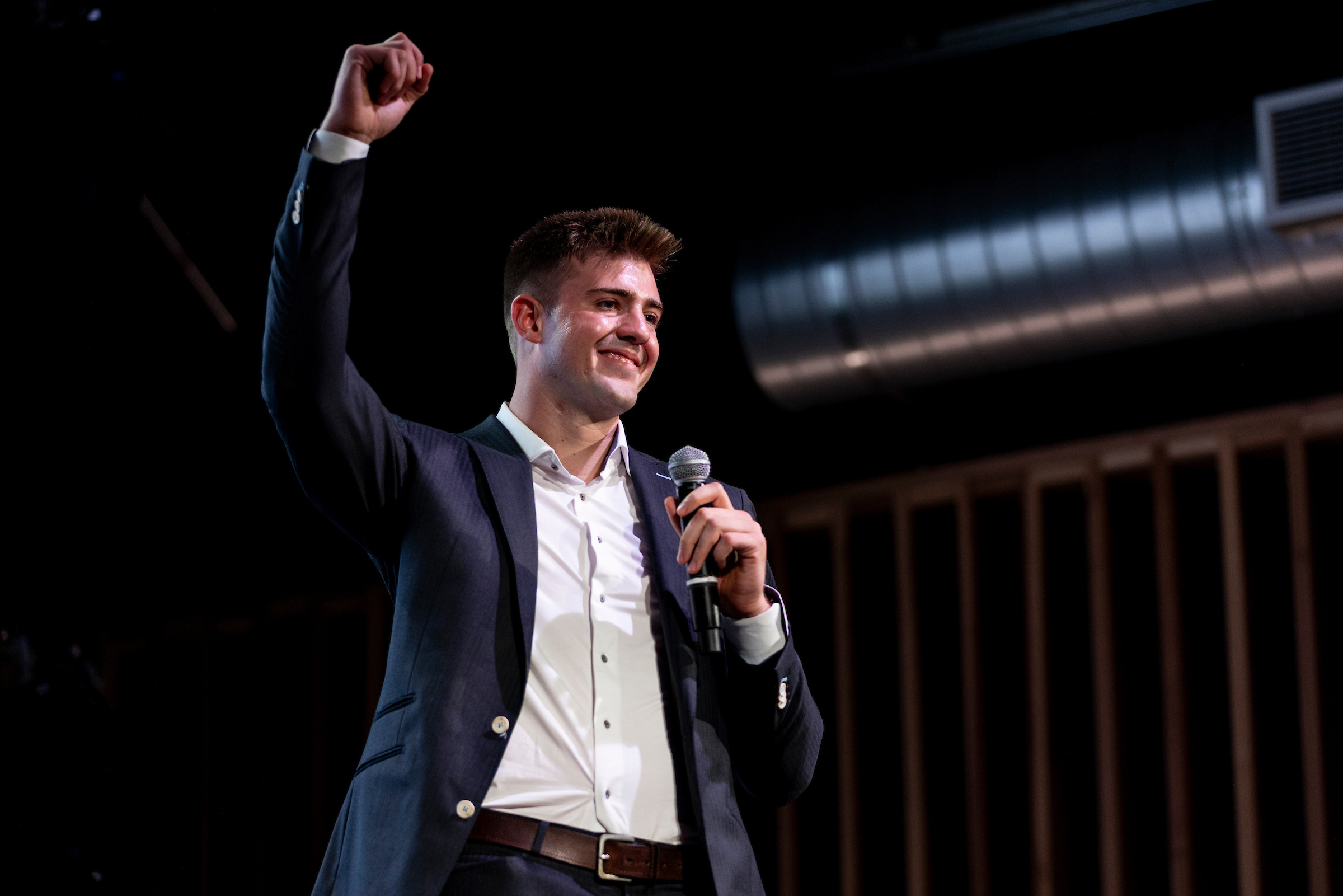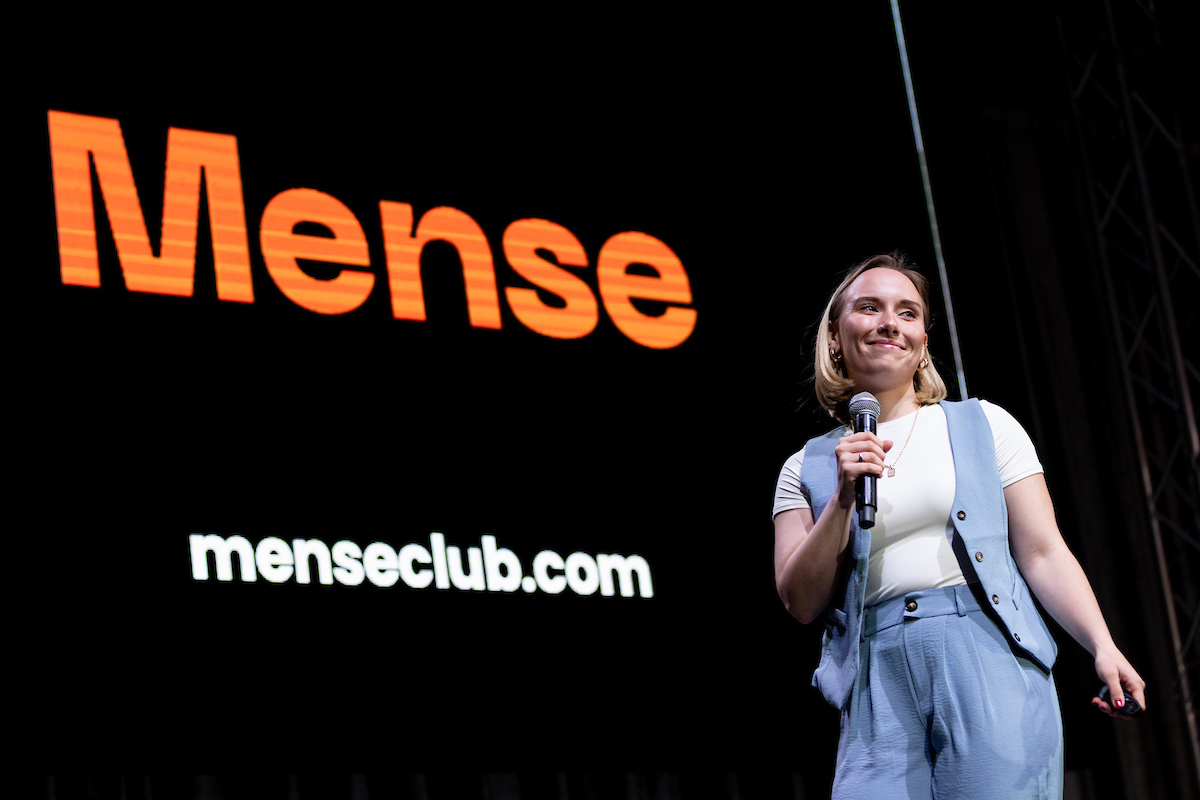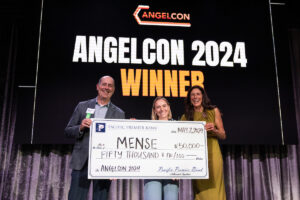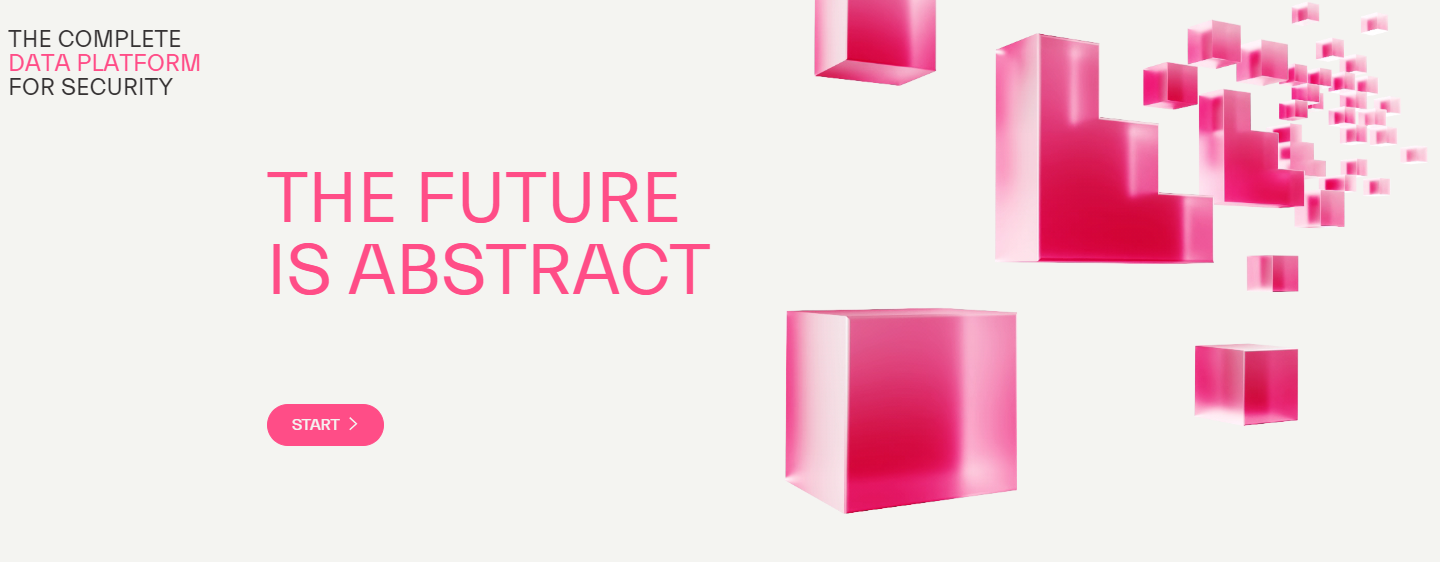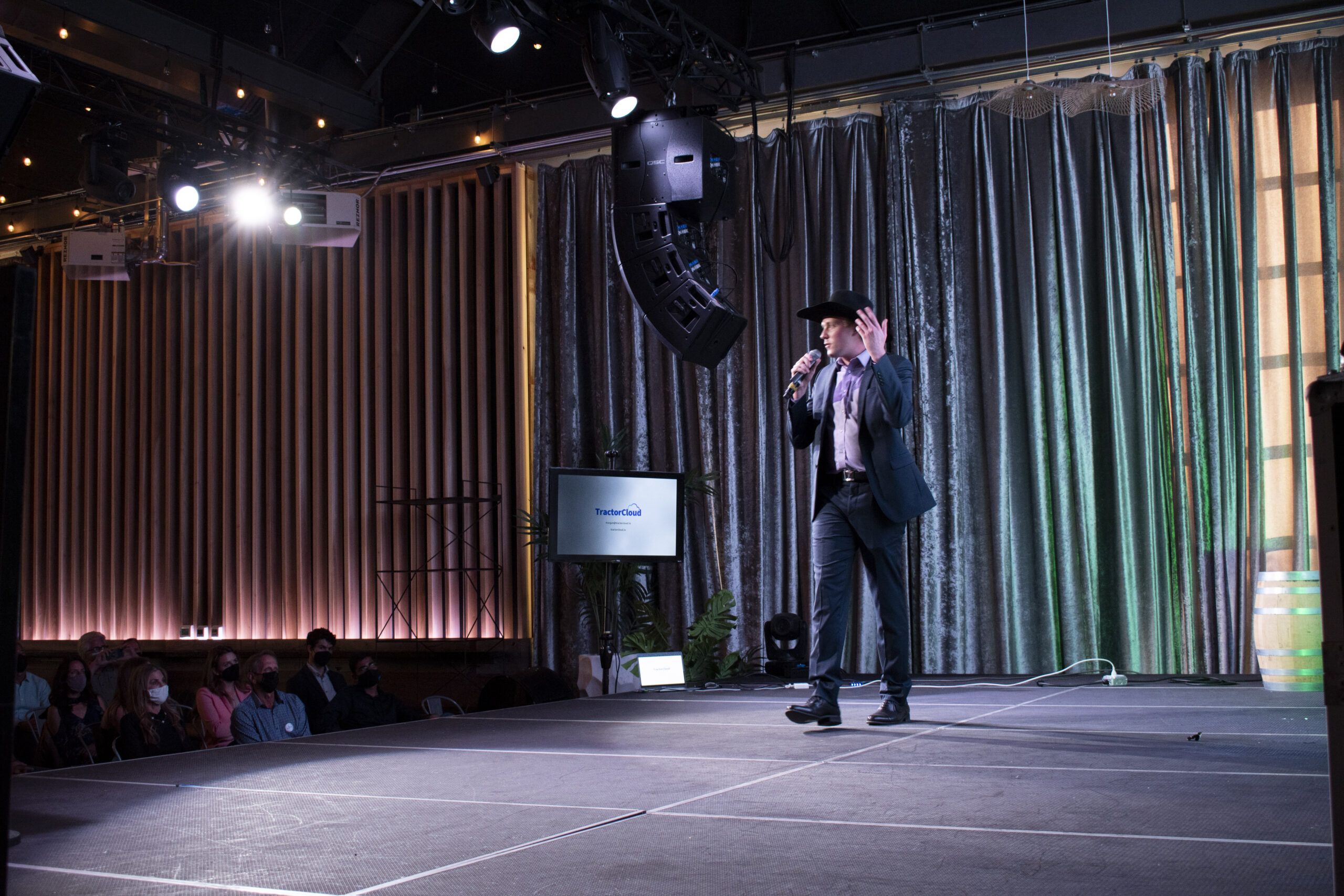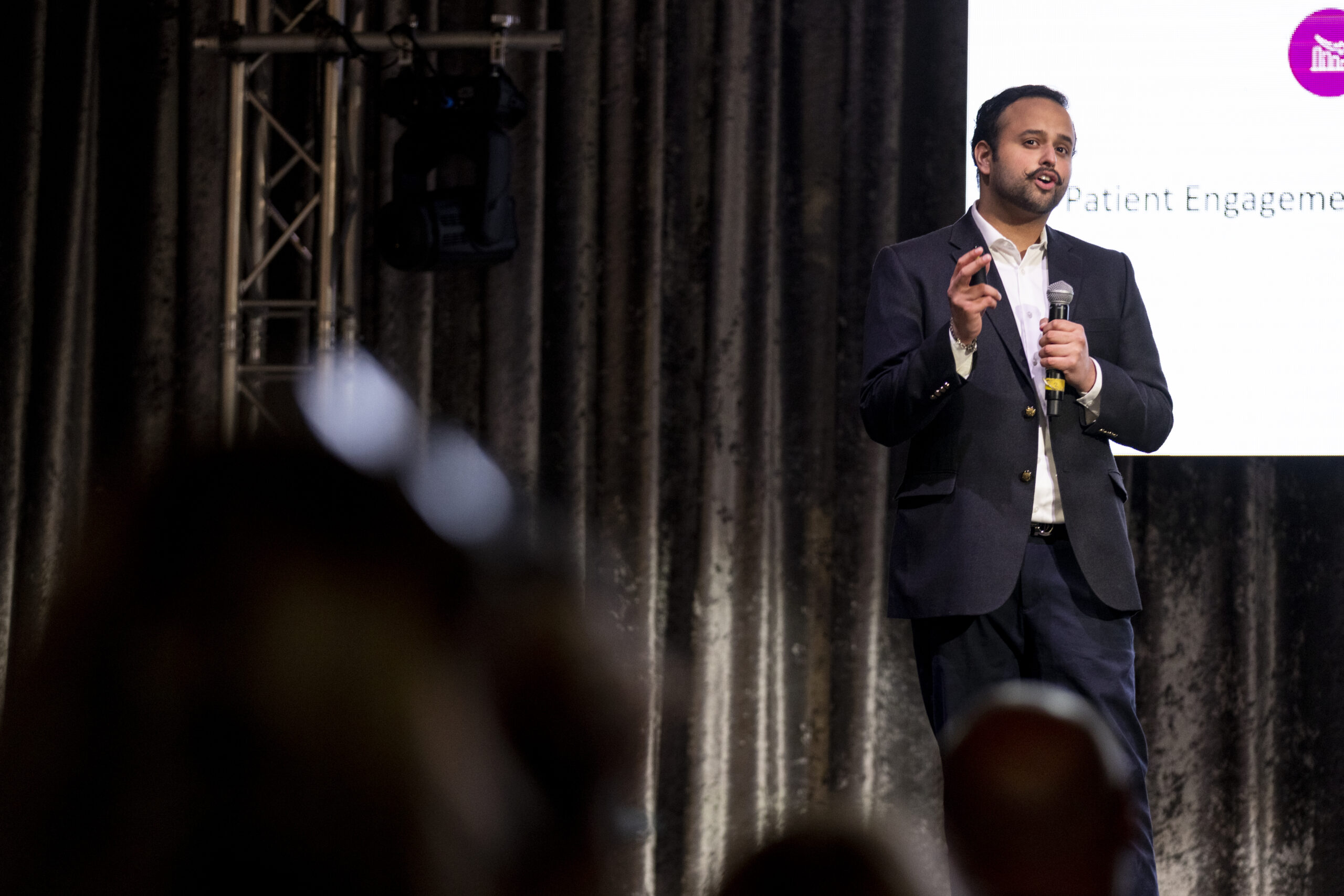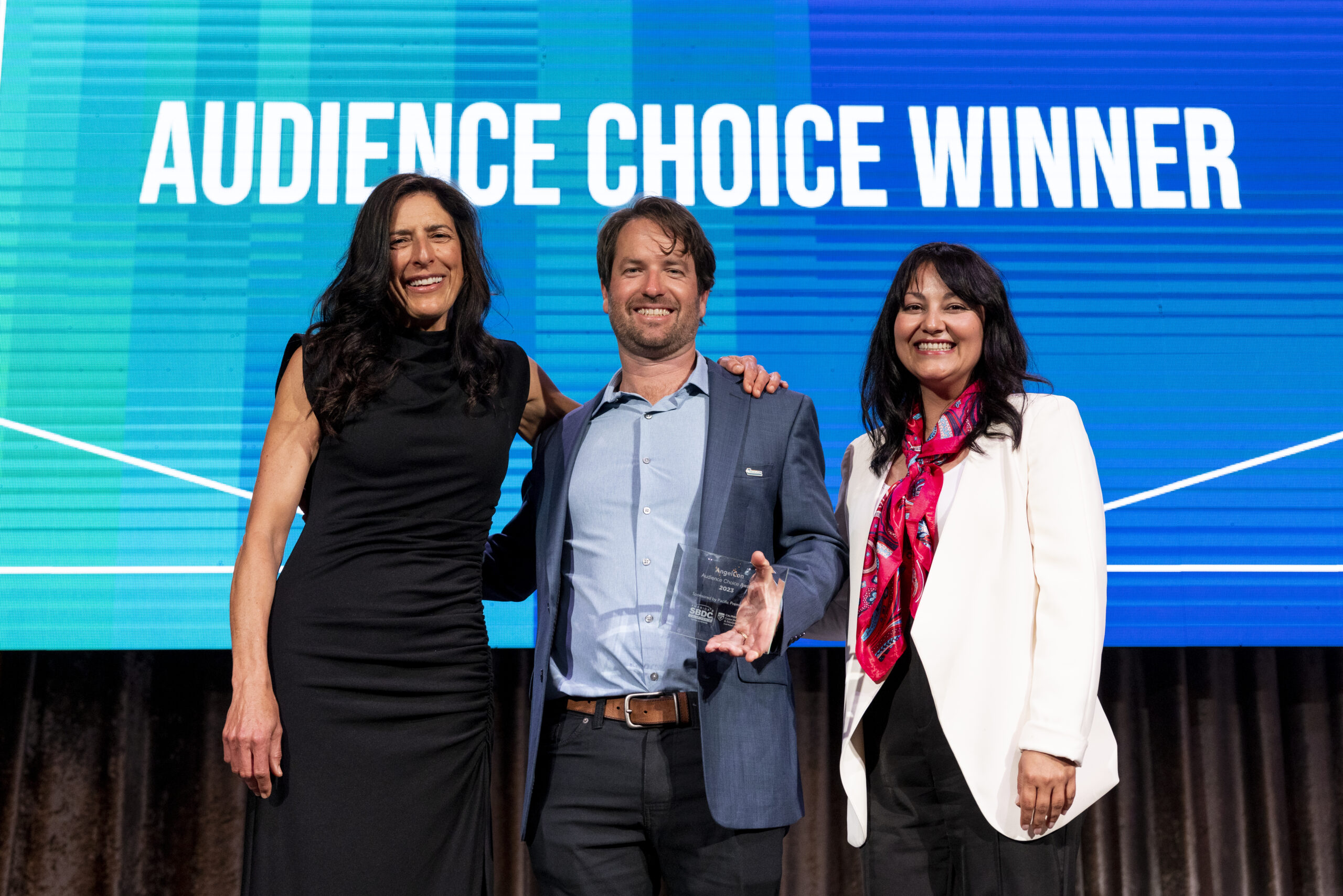ENTEIN Alternative: An insect-powered solution to food waste

When Bill Burns began experimenting with insect farming in his mom’s basement, he never imagined it would grow into a company tackling one of agriculture’s biggest challenges: food waste.
California Polytechnic State University (Cal Poly) materials engineering graduate Burns founded ENTEIN Alternative, a food upcycling company that helps food manufacturing facilities repurpose organic waste into sustainable products. ENTEIN installs on-site insect farming systems that convert leftover materials into protein, ideal for livestock, fish, pets and a frass fertilizer that can be returned to the same fields where the food was grown.
The idea for ENTEIN blossomed while Burns was an undergraduate student. “During my time at Cal Poly, we were working on a food waste program for my communications class,” he said. “Through some more research, I saw someone growing bugs in their backyard. They were putting in waste products, and out came food for their chickens. I thought that was really cool and wanted to do the same.”
That curiosity led Burns to start a small colony of insects in his family’s basement around 2019. Using local food waste, he produced protein to feed his mom’s chickens. What began as a personal project soon grew into a sustainable venture. Burns later secured a 2,000 square foot greenhouse space on campus, where he turned food scraps from Cal Poly dining halls into insect protein and fertilizer for Cal Poly’s agricultural fields.
In 2023, Burns joined the Cal Poly Center for Innovation and Entrepreneurship (CIE)’s Summer Accelerator, an intensive 12-week program that provides Cal Poly students and recent graduates with the resources necessary to turn their innovative ideas into full-fledged startups. Participants in the Accelerator receive $10,000 in seed funding, as well as access to expert mentorship, entrepreneurial workshops and a dedicated workspace in the HotHouse, the CIE’s office located in downtown San Luis Obispo.
“The Accelerator was a great experience,” Burns said. “I learned how to build a company and tell its story through my pitch at Demo Day.”

09/08/23 – SAN LUIS OBISPO, CA: The CIE’s Summer Accelerator teams showcase their startups during Demo Day 2023 at SLO Brew Rock on September 08, 2023 in San Luis Obispo, California. Photo by Ruby Wallau for CIE
After graduating, Burns transitioned into the CIE’s Incubator program, where he began developing ENTEIN full-time. The Incubator is a two-year program that includes everything needed for early-stage companies to develop into financially stable, high-growth enterprises by providing the tools, training and infrastructure that help facilitate smarter, faster growth.
“Joining the Incubator felt like the next logical step,” he said. “We had built a lot of good momentum through the Accelerator and during the school year, and the Incubator gave me the space, mentorship and resources to keep it going.”
Through the program, ENTEIN gained access to experienced mentors, business coaching, and connections in the agriculture and agtech industries — resources that helped turn the startup’s pilot operation into a growing enterprise.
“The mentors that the Incubator provides have been essential in helping guide our mission, vision and day-to-day operations,” Burns said. “Through the CIE, we were connected to great folks in agriculture who helped us get our fertilizer onto the crops that most benefited from it. Those connections were instrumental in getting our company going.”
Since joining the Incubator, ENTEIN has begun collaborating with larger companies across California’s Central Coast, strengthening both sides of its business: the waste management partnerships and the sale of its upcycled products.
“It’s been really helpful in getting the customers we need,” Burns said. “The Incubator helped us build a strong pitch so people understand our story, our journey and the value we create for agriculture on the Central Coast.”
As a solopreneur who was once a student balancing a full course load and an operating business, Burns had to learn the importance of prioritization early. “It was a lot to balance going to school full time and having a company full time,” he said. “I spent a lot of late evenings at the greenhouse and early mornings on homework. You just have to focus on what’s most important at that moment.”
Now, with ENTEIN growing steadily, Burns is focused on scaling the company’s impact. “Moving forward, the plan for ENTEIN is to continue building relationships and increasing our capacity to turn food waste into new food products,” he said. “We’re experimenting with other crops in this region and getting our protein to customers who will really benefit from sustainable insect protein.”
For student entrepreneurs who want to follow a similar path, Burns says the Incubator can be a powerful starting point. “If you’re an entrepreneur, you should apply to the CIE Incubator program,” he said. “It’s a vibrant community that supports you with mentorship and resources and helps propel your business to a level you wouldn’t reach otherwise. It’s really helped us get our business where it is today.”

